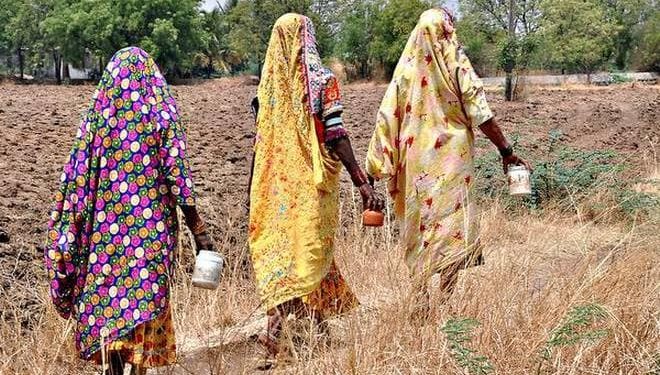A report published by the news website The Wire debunks Union government’s claim, made October 2, 2019, that rural India was open defecation free. While that claim implied that every household now had access to a toilet, the reality is far removed from that. A National Statistical Office (NSO) report titled ‘Drinking Water, Sanitation, Hygiene and Housing Condition in India’ points out that “29 per cent of rural households and 4 per cent of urban households had no access to toilets”. The NSO report is based on a survey of about 9,000 households across the country conducted between July and December 2018..
It contradicted Swacch Bharat Mission database figure that rural India had achieved 100 per cent toilet coverage. The eagerness of the government to highlight its achievement in instilling a culture of cleanliness is quite understandable. There has been no prime minister in recent memory who has pushed as much for cleanliness as Modi has. The effort is definitely welcome. But the government and the Swacch Bharat Mission have failed to factor in the ground realities before making an unsubstantiated claim.
In an increasingly impoverished rural India, it would be ludicrous to expect people to go for toilets in place of a roof over their head. In many cases reported from different parts of Odisha, it was seen that homeless families had moved into the toilets constructed under the Swacch Bharat Mission and made it their homes. The funny part is that obtaining a free toilet has been added in the long list of government goodies that people, both in urban and rural settings of the state, have started demanding. The NSO survey points out that Odisha, Uttar Pradesh and Jharkhand are the worst-performing states in ridding themselves of open defecation. The report says they still have 50 per cent, 48 per cent and 41 per cent of households respectively which do not have access to toilets. Although the initiative taken by the Prime Minister in addressing cleanliness is well intentioned, the eagerness shown to highlight improbable results is worrying because most of the toilets already constructed do not have water connexion. While earlier social habits were considered filthy since people defecated in open fields, the present day government sponsored toilets have no system for cleaning the septic tanks. This will certainly involve manual scavenging.
India cannot be swept clean in a jiffy. There are several layers of ossified practices and cultural vestiges that are making cleanliness a huge problem for this society. The ecological costs of introducing toilets in a country with a burgeoning population are huge. Even where water is available, every flush of a toilet sucks up water that could otherwise have met drinking water needs. Rural India, grappling with the effects of climate change, is not equipped to handle multiplying water needs that toilets bring.
The developed world appears to have found solutions to its issues with the disposal of human waste. But parting the veneer just a little would show that the issues that such countries, too, are facing are very much there. The first and foremost change needs to happen in the toilet itself for the massive challenge to be addressed. Some glimpses of innovation have sporadically emerged from different regions on the management of human waste. But these solutions have not helped entirely avoid water usage in toilets. India has been investing heavily in its space missions. But the technology being developed for space missions have not found widespread applications in real life across the country. International space agencies such as NASA have invested their resources in developing technologies that can have applications on Earth. Sometime ago, the space agency had invited ideas from the public on creating a toilet system that would not require the use of water and would transport human waste without hassles. No response was forthcoming as new ideas are also extremely scarce in this country. Unless affordable and scalable technological solutions can be found to the vexatious issue, the Swacch Bharat Mission cannot deliver results. The government need not push the implementation of a mission that cannot assure success given the range of variables involved. Cleanliness will follow when people have enough to feed, clothe and shelter themselves adequately. On top of all this is education and awareness. All this will need a stronger economy. Greater attention to that could be the more sustainable solution to clean India.







































